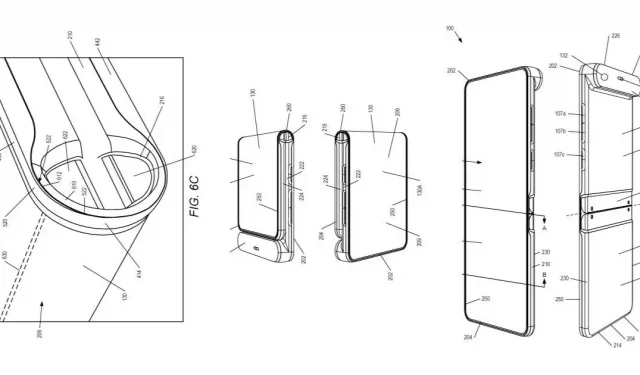Motorola has patented a flip phone design that folds outward, and here’s how it could work

Motorola has received a new patent from the World Intellectual Property Organization (WIPO) for a flip phone design. The global patent shows sketches of a design concept that uses an outward-folding display instead of the inward-folding design Motorola previously offered with the Razr. The new design details what the smartphone will look like and seems to include more concepts for using the foldable display panel.
Motorola clamshell out: how it might work
According to the patent application, the foldable phone will have a flexible display on the outside of the phone, rather than the usual inward-folding design. The external display when folded means users will get a display on both the front and back of the phone. This will likely be complemented by some software feature that offers a functioning smartphone interface with unique front and back features. For example, while the front of a folded phone can work as a normal folded smartphone mockup, the back can work as a viewfinder for the rear camera.
Speaking of the rear camera, it looks like it’s stored in a ledge that will likely house the camera, as well as other relevant sensors. The design also showcases the concept where a single camera module will serve as both the front and rear cameras – when folded, it can take pictures from the back and take unfolded selfies.
The folding hinge also features a U-shaped curvature and a gap between the fold hinge, which is similar to what Oppo recently showed off with the Oppo Find N foldable phone. With the latest, Oppo showed off a design where the flex display has a smoother curvature to ensure there are no visible creases. in the long run.
So far, Motorola has tried to revive its iconic Moto Razr style with an inward-folding display and Android interface. However, the lack of durability and high price meant that the latter was not a commercial success. It’s unclear if Motorola will release a foldable smartphone, but the patent concept looks interesting to say the least.
Leave a Reply